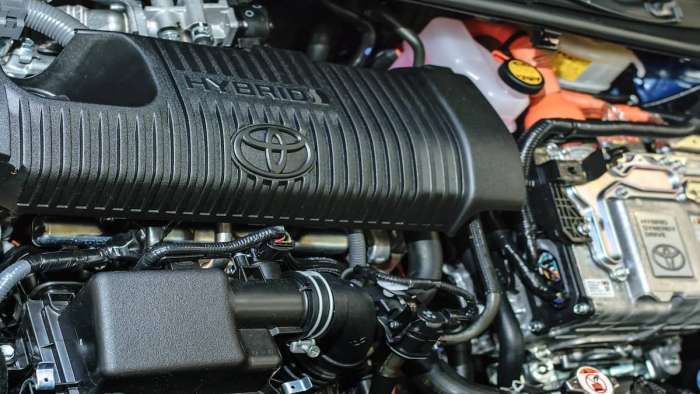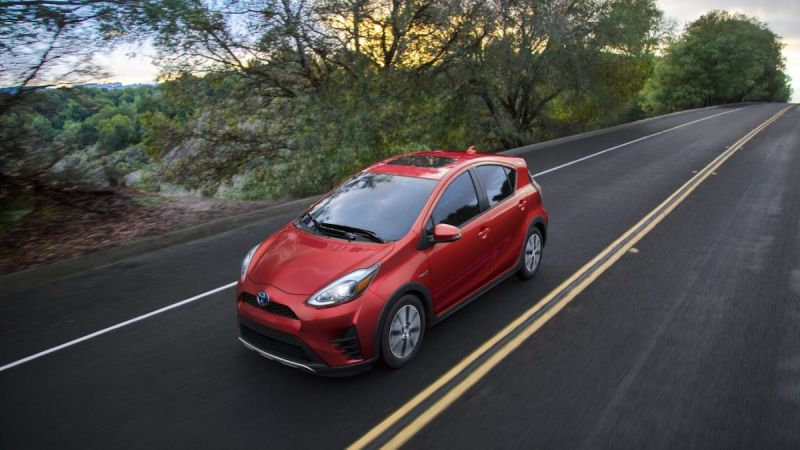All the traveling that I have done these past 3 months has really led me to believe something. My Prius is a rock solid, hard core, durable, driving machine. I bought this car with 245,000 miles on it, and it is still zipping around town averaging about 40-42 mpg.
Buying a car with that many miles would absolutely shock most people. It is funny actually, when I talk about my Prius in conversation, and I tell people how many miles are on it, their eyes get real wide. Seriously though it is crazy how well built these cars are. I want to take a look at a couple reasons why many of these 2nd and 3rd gen Prius (1st Gen R.I.P. buddy, we love you!) are still on the road. Many with even far more miles than mine.
The Toyota Prius is so durable
If you have not read any of my other articles, you may not know this. Prius was designed to be a car that would shape the future of transportation. It was built from the ground up to change everything we knew about fuel economy, and sustainability. The Prius had to start off life as a machine that would not break, and if it did would take very few resources to get it back up and running again. Prius had to compete with compact cars that initially less expensive to build. Prius was more expensive and had more parts when it first rolled out and that really had many people concerned. Toyota was taking a massive gamble at how this new technology would fare, and that gamble paid off.
Prius had to have a rock solid foundation. Toyota engineers knew that the engine, transmission, hybrid battery and all other systems had to be built, tested, improved and worked over again. This car had to withstand the test of time because it had to work if it was truly going to change the future of transportation.
Prius Engines
The 1.5L 1NZ-FXE Toyota Hybrid engine had to be sturdy. The crankshaft and connecting rods are forged from the factory giving them added strength to withstand some serious abuse. The starting and stopping that these cars do really does a number on the internal components. Toyota thought this through and took an existing proven engine from the Echo (later evolved into Yaris) and placed it in.
The differences between the two engines come down to the cycle in which they run. The Otto cycle is found on the gas only models, while a Atkinson cycle is found on the Prius. This cycle allows late intake valve closing, allows for an actual simulation of the cycle but gives all the advantages of using it. If you would like to know more on the Atkinson cycle I will be doing piece on this later on. Just know that it aids in fuel economy.

The combination of forging, simulated Atkinson cycle and being an all aluminum engine, made this powerplant really become a winner. There are other features that also went into making this engine grea, but know that it was a proven technology that Toyota used in many other cars as well.
Prius Transmission
In 2000 there were to hybrids out. The Honda Insight, and of course Toyota Prius. Honda's version of a hybrid was neat, and it actually did get higher MPG ratings than Prius, but it was not nearly as practical. Toyota knew that if Prius were to have issues, people would still need to drive them in to get service. That is why when the transmission was built, Toyota used a power split system that allowed the car to run on gas, electric, or both under the right conditions. This meant that if your hybrid battery shot out a P0A80 code, you could still drive the car in to get serviced without having to call a tow truck.
Toyota also utilized two electric motors instead of one, which gave a wider range of possibilities including better regenerative braking. There was also no conventional 12v starter motor, and the motor generator would start the gas engine at a faster rate reducing the amount of fuel needed to crank it over normally. The design was also very rugged. The internal parts such as the input shaft, dual mass flywheel and gears were all very heavy duty. They needed to be able to take the abuse. Toyota also utilized fewer moving parts internally which reduced the possibility of failure and increased durability. It was a sure win. Even maintenance on the transmission is very simple. A quick drain and fill of only 4 quarts of Toyota WS Fluid, services that transmission for another 60 to 100k miles. Depending of course, on your driving habits.
Toyota Hybrid System and Traction Battery
Even though we are seeing battery replacements all the time, there is something to consider. Many of these consumers that are just now replacing the battery are doing so well after 200 and sometimes 300k miles. Um, wow!
Nickel Metal Hydride (Ni-MH) batteries are a seriously rugged piece of technology. Ni-MH was built to take fast charges and also fast discharges under high load circumstances. Toyota saw the genius in this and used it in Prius. The result was awesome. In fact, Toyota has believed in this battery tech so much, they have hesitated for a very long time of even putting Lithium Ion in many of their cars. Toyota will study and research until they have sufficient data to prove how well it will hold up over time. The HV battery was no exception. Even though the very first Prius back in 1997 had round modules in it, Prius in 2000 had a modified version of the Ni-MH battery technology.
Toyota still today uses these batteries because they can predict how well it will perform over time. Good call.
Conclusion
Prius was made to be a legend, and it is. It was designed in all aspects to be durable and rugged because it needed to withstand the test of time, and it has. I would rarely hesitate to buy a Prius with high miles because I know they are solid cars with many more miles left in them.
I hope that you have enjoyed reading about Why the Toyota Prius is so durable. Check out my other story Why the first generation Prius is better than either generation Nissan Leaf.
See you in the next story where I am discussing why the Toyota Prius AWD-e is the best one yet and why car enthusiasts and average car guys loathe the Toyota Prius. Also don't miss my latest story, where I am discussing the biggest pros and cons for the Toyota Prius.
Also Watch New tech means more MPG from your Toyota Prius and Click to Subscribe to Torque News Youtube Channel for Daily Toyota Prius and Automotive News.
Peter Neilson is an automotive consultant specializing in electric cars and hybrid battery technologies. He is an automotive technology instructor at Columbia Basin College. He holds a Bachelor of Science in Automotive Service Technology from Weber State University. Peter can be reached on Linkedin and you can tweet him at The_hybrid_guy on Twitter.
Set Torque News as Preferred Source on Google












Comments
Hey, Peter: Not has only all
Permalink
Hey, Peter: Not has only all you said, but they hold their value like crazy. My 2017 Prius Two was recently totaled. I had paid $26,000 for it new. The insurance settlement is $24,500. I’m picking up a brand new, fully loaded 2019 Prius LE for $26,000! Let the naysayers beat that!
Loved my 2nd gen 2006 Prius
Permalink
Loved my 2nd gen 2006 Prius and I have a 4th gen 2017 now but the 2006 threw a rod through the engine block and hemmoraged quarts of oil at 175k.
...and the battery tech is
Permalink
...and the battery tech is made in collaboration with the most conservative and quality testing tech company in the world aka Panasonic (Pana and Toyota worked together since the 50's)
Our 2005 Prius needed a
Permalink
Our 2005 Prius needed a battery overhaul sometime around 2012. That was about $2000 at 210,000 miles. This year we needed a new exhaust system for $600 (@%&#!) to pass inspection. I don't know why because we still get 45-55 mpg. Now it is close to 290,000. It has more than paid for itself. We also bought a used 2017 Prius Prime last winter with 20,000 miles. Long trips, we get 60+ mpg, medium drive around town, 100 MPG. And if all our trips are less than 30 miles, it uses no gas at all.
Hi! Do you use Twitter? I'd
Permalink
In reply to Our 2005 Prius needed a by Ed Circusitch (not verified)
Hi! Do you use Twitter? I'd like to follow you if that would be ok.
I'm absolutely enjoying your blog and look forward to new
updates. aid for ukraine
An article about durability
Permalink
An article about durability should talk about the life of the hybrid battery but yours did not.
Yes, I live here in Alaska!!
Permalink
Yes, I live here in Alaska!! I bought mine in Sep 2004. 472,000 miles on it, I can attest to its "Durability". Yes, I will admit it's got mostly highway miles on her, as I drive 100+ miles round trip a day, but she still gets 40-46 mpg!! I can get it back up to 50 if I put in new spark plugs. Best deal ever for me!
340,000 miles on the same
Permalink
340,000 miles on the same traction battery here on my 2008 Prius. Stuff wears out like the entire exhaust system (love that salt) so I got it replaced because while I'm not cheap, I'd rather spend my $$ on tequila, tacos and chicas lol
Drive a 2014 Prius best car
Permalink
Drive a 2014 Prius best car ever, however the transmission is sealed and never needs a change, what’s your experience anyone at 92000 miles.
I drive a 2014 Prius and I'm
Permalink
In reply to Drive a 2014 Prius best car by E T (not verified)
I drive a 2014 Prius and I'm at 126K, smooth sailing!
I own a ,2011 Prius and o
Permalink
I own a ,2011 Prius and o love it I bought it with 42000 miles the only thing I had to do is replace the airbags at no charge recall and a seal for the driving chain cover
I bought a 2004 prius from my
Permalink
I bought a 2004 prius from my neighbor 236000 miles still good going around.
my wife and i love her prius.
Permalink
my wife and i love her prius. still waiting on the first 100k miles. ever considered editing before publishing?
2005 Prius owner here. Just
Permalink
2005 Prius owner here. Just replaced the battery earlier this year for 2k. Worth it. I have a brand new car again. Just wish it had an AUX port.
Due to regenerative braking
Permalink
Due to regenerative braking the brakes don't need repair or replacement as often. Our 2012 has the factory installed pads (etc.) at 162,000. Authors might mention this more often.
Purchased our Prius V in 2014
Permalink
Purchased our Prius V in 2014. Now have 125k miles on it. Only thing replaced was both headlights and a new ser of tires. Great car and the gas mileage is always 40+.
My 2009 Prius is at 275000
Permalink
My 2009 Prius is at 275000 miles and I still have the original brakes. It was rear end-ed and totaled 4 years ago. I took the insurance money minus the salvage value and kept the vehicle. I still drive it even though rear bumper is destroyed. Now I have only liability insurance and still get 45-50 mpg. Next goal is to hit that 300K miles with factory brakes!
If you're only getting 40
Permalink
If you're only getting 40-42MPG, either you're driving very, very fast or there is something wrong with your car. Generally a Prius averaging under 45 MPG is consistently traveling over 75 MPH, has a brake dragging or something else is going on. I recommend you get your car checked out because I think your fuel economy could be about 15-20% better than it is now.
Not really as durable as you
Permalink
Not really as durable as you think. I'm an auto body tech for a living and have worked on countless Prius's. The durability factor is extremely debatable. Toyota as a manufacturer are also very cheaply made. Are they built to last? Yes, but they also rust into one giant rolling piece of shit. The article above is written by someone only going off of numbers not actual experience. There are much better hybrids.
Yeah not buying your claim
Permalink
In reply to Not really as durable as you by Reese (not verified)
Yeah not buying your claim these things rust into junk. I'm a master tech with 20+ years of experience and certified on hybrid electric vehicles.
I've SEEN enough to know you just made that rant up
Yes, so true I bought my
Permalink
Yes, so true I bought my first hybrid used. 200k+ miles 2005 Prius. Drove it till 380k sold it to a business owner who need a delivery car. It's solid still on original battery get 36-40 mpg in hot or cold weather.
Bad design on caty converter.
Permalink
Bad design on caty converter. Hear lots of Prius caty theft and high price replacements. Volt is impossible to quickly steal caty converter and replacement is under 1k at dealer. Also have heard Prius has engine and generator problems after 150 k miles. Vehicle still pollutes and it is time for non polluting vehicles now not 20 years from now